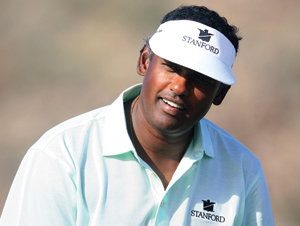Each year, companies contract to pay athletes billions of dollars to endorse their products. This massive market generates income for many athletes well in excess of what they make on the field, and it sustains an entire industry of athlete representatives.
Despite the amount of money at stake, athletes and their representatives often do not appreciate the legal details of endorsements, exposing the athlete to unnecessary risk, diminished business terms and other negative consequences. What follows are 10 legal issues that agents, attorneys and athletes should consider when negotiating endorsement contracts.
1. Scope of endorsement
The contract should clearly establish the scope of the athlete’s endorsement duties, i.e., specifically when and how the athlete is endorsing what product. The failure to establish duties that the athlete understands and will satisfy can have serious consequences.
2. Exclusivity
If the company demands exclusivity in the product category, as is customary, the definition of the category should not overly restrict the athlete from obtaining other endorsements. For example, if Tom Brady agreed last year to endorse Under Armour exclusively in the clothing category, rather than something like athletic apparel, he could not have signed his ensuing deal with Ugg Boots. Moreover, any conflict with an existing endorsement should be disclosed and waived.
3. License
Each endorsement contract grants the company a license to use the athlete’s name, likeness and other characteristics. The grant should specify at least the purposes for which the license may be used, the media in which the license may be used and the license territory. The athlete should also have the right to pre-approve any materials bearing his image (illustrated by Carson Palmer’s embarrassing 2007 print ad for John Morrell sausages).
4. Extensions
Provisions that permit the company to extend the endorsement, such as options and rights of first refusal, should be minimized if they would prohibit the athlete from realizing the fair market value of his or her endorsement at the end of the term. Many agents particularly abhor rights of first refusal, which give the company the right to match a competing offer and thus less incentive to make an independent renewal offer. They also chill other offers, as a competitor would not want its offer revealed or stolen. From my experience, however, many companies will drop a right of first refusal request if the athlete agrees to exclusively negotiate (but not necessarily sign) an extension before seeking another deal, a more attractive alternative for the athlete.
5. Appearances
Companies often require appearances as part of the endorsement, such as for an outing with key customers. Particularly in NASCAR, where drivers make appearances for a carful of sponsors, the terms are negotiated in heavy detail. Appearances should be scheduled only at convenient times, upon advance notice and up to a specific time limit, with all travel expenses reimbursed.
6. Testimonials
Under new Federal Trade Commission guidelines, an athlete can be liable for making a false or unsubstantiated testimonial about a product, even if prepared by the company. Thus, the company should be prohibited from asking the athlete to make testimonials that violate the FTC guidelines, even just a false tweet. Moreover, the athlete should have the right to review testimonials in advance and object.
7. Compensation
The contract should clearly establish the business deal, which may include fixed fees, incentive compensation, royalties and/or free products. Particularly, representatives should carefully define performance terms only previously discussed at a high level, such as “sales” or “revenues.” In a recent negotiation where a client’s compensation had been generically designated as “10 percent of the company,” it was successfully negotiated that he receive 10 percent of the company’s “gross revenues” rather than “net profits,” a much more lucrative deal.
8. Termination
The company should be permitted to terminate the endorsement early only if the athlete materially breaches the contract and fails to cure. Ideally, material breach will be defined, with reasonable examples including missing appearances, disparaging the company or violating a morals clause. However, where athletic performance is contractually required — a golfer playing in 20 PGA Tour events for his equipment company, for example — illness or injury should not be cause for termination (although a compensation deduction is normally appropriate).
 |
GETTY IMAGES
Singh continued to wear Stanford Financial’s brand after the company faced SEC charges. |
9. Morals clause
Companies increasingly require morals clauses, which permit the company to terminate the athlete for an act that significantly devalues the endorsement or embarrasses the company. Recently, using morals clauses, Sprint terminated Miss Sprint Cup Paige Duke for racy photos, and Champion terminated Rashard Mendenhall for offensive tweets (for which Mendenhall sued last week). These clauses, while highly customized, should never be so broad as to allow the company to terminate for other reasons (e.g., it just made a bad deal). Further, morals clauses should exclude on-field acts within the scope of the sport, such as fighting in hockey. Oppositely, in an era of corporate wrongdoing, the athlete should be permitted to terminate the company for an immoral act. In 2009, Vijay Singh continued endorsing Stanford Financial after the company was charged with defrauding investors in a $7 billion Ponzi scheme, likely because his contract did not include such a reverse morals clause.
10. Indemnification
Despite the legalese often attached, the concept of indemnification is simple. Indemnification is an obligation of one party to compensate another party for its losses. The remedy is severe and thus is typically triggered only if the losses are caused by the compensating party’s bad act (e.g., willful misconduct). An athlete should give an indemnification provision only if receiving an equivalent provision from the company. Meanwhile, an athlete with significant leverage could potentially negotiate a broad, one-sided indemnification provision from the company.
While an endorsement likely presents additional legal issues, such as confidentiality, choice of law and force majeure, close attention to these issues should help establish a concise contract that reflects the business deal and protects the athlete’s interests.
David T. Miller (dmiller@rbh.com) is a sports and entertainment associate with Robinson, Bradshaw & Hinson in Charlotte.





